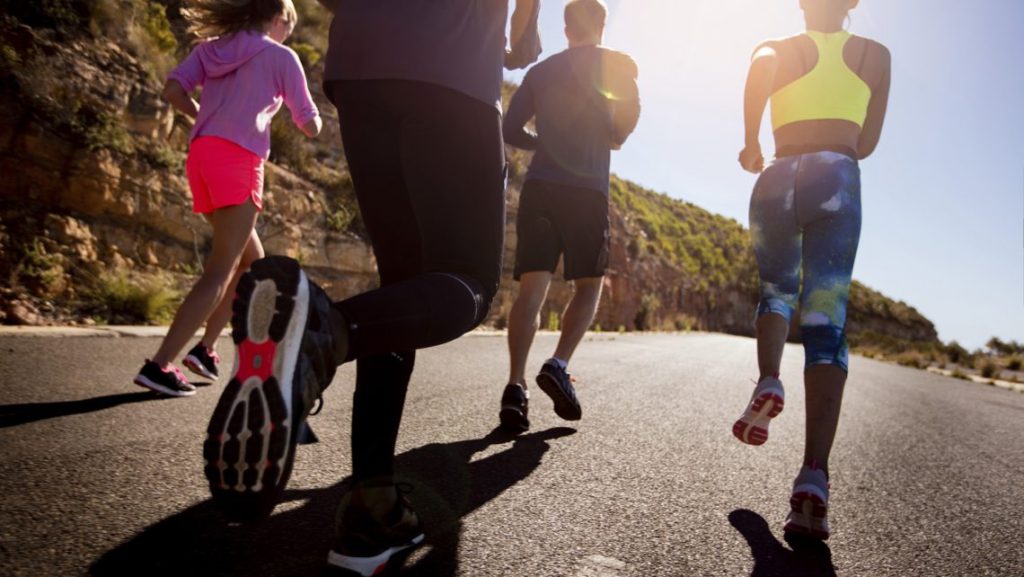Weight Loss FAQs

Helping people lose weight, improve their fitness, strength and health is very rewarding. Whether you are at the very beginning of your weight loss journey or somewhere in the middle there are always questions to be asked and things to be learned. If you are looking to lose weight and have a question, your answer might be here. I’ve compiled a list of the questions I am asked most frequently. Here’s the Top 10!
How will weight resistance training help me lose weight?

Weight resistance training has a direct effect on your body’s composition. It’s not as efficient at burning kilojoules as some cardio workouts but increasing muscle mass while losing fat will positively impact your metabolism.
How can I eat to lose weight and feed my family too?

This sounds like a simple question but it is complicated. Initially, it may seem easiest to change the way you eat and continue to feed the family the way they’re used to but there can be a few hiccups! Firstly, if the food you are used to eating and that you enjoy is readily available it is harder to resist the urge to eat it than if it isn’t accessible. Secondly, isolating yourself by eating differently to everyone else is depressing. Eating together is a beautiful way families connect and it is possible to maintain that deep connection while still losing weight. Change a few of your family’s favourite meals to be lower in kilojoules, or serve smaller portions and bulk up the meal with vegetables and salads. Stock the pantry with healthier, lower kilojoule snack foods so you can still nibble on something yummy while the kids are having afternoon tea. It does require willpower to be the only one restricting food intake but it is possible.
How many kilojoules do I need to burn in order to lose weight?

8700kj is the recommended daily intake for the average adult. Reducing that intake by 2000kj daily will result in weight loss.
Can I lose weight through diet alone or do I need to exercise?
Exercise has a consistent impact on body fat reduction. It’s a slow and steady approach because while kilojoules are quick to consume they are slow to work off. The biggest benefits of exercise are improved strength, improved overall health, improved mood and support of resting metabolic rate. All of which can help keep you motivated to stick with a kilojoule restricted eating plan. The most effective way to quickly reduce weight is through diet. Ideally, you’ll combine diet and exercise but managing food intake should account for at least 80% of your weight loss program.
Does our metabolism slow as we age?
Yes, it does slow a little but that is because we tend to lose muscle and gain fat. Increasing weight training to maintain muscle mass as we get older can reduce the effect of aging on our basal metabolic rate.
Is it really easier for men to lose weight than for women?
The answer is yes! And no! Well, a little bit yes. Men have a higher muscle mass than women and muscle is the most efficient tissue metabolically. However, the difference isn’t so great that men don’t need to try just as hard to manage their weight loss factors. Managing cravings, finding time to exercise, and committing to a weight loss plan are not gender specific. There may be small adjustments required but diet and exercise plans can be shared by both men and women.
Can I drink alcohol while losing weight?
Alcohol is calorie dense and often high in sugar so reducing the number of drinks per week can have a big impact on the number of kilojoules consumed by even moderate drinkers. For example, one glass of wine contains about 340kj, one glass of beer contains about 380kj and one gin and tonic contains a staggering 840kj!
How do I ignore food cravings?
Willpower is a limited resource so it’s important to use it sparingly. Burning it all in the first week or two of a weight loss program will mean there isn’t any left for the weeks that follow and that’s when most people start sneaking in treats, skipping workouts and eventually revert to their old habits. Researchers in the US studied how to use the willpower we have to best effect and recommend building in ‘cheat days’ or ‘free days’ into a weight loss program from the very beginning. A study published in 2014* indicates that there is a weekly weight loss rhythm. We lose weight during the week and regain weight over the weekend. This pattern is most clearly evident in people who are losing weight overall. Cravings are easier to manage if you know that you can satisfy that craving eventually. So, relaxing the rules a little over the weekend can both recharge your willpower batteries and be an indicator of positive weight loss behaviour.
How long will it take to reach my goal weight?
Rates of weight loss vary from person to person but most experts recommend losing 1 to 1.5kgs per week. This may not sound like much but, if your goal is to lose 10kgs and it takes 3 months you will also have been able to lose bad habits and gain good habits around food and exercise over that period. Improved health should always be linked with weight loss so drastic weight loss is not encouraged.
How can I keep the weight off once I lose it?
One of the main reasons people regain weight within the first year after reaching their goal is a drop in resting metabolic rate. A slower metabolism means a person can exceed their daily energy requirements even if they are eating less than they used to. However, this is probably only part of the explanation. Appetite changes and difficulty in accurately tracking how much people are eating probably also plays a role. So, even when you get to your goal your journey isn’t over yet! Weight loss is best maintained through staying active and shifting the focus from eating for weight loss to eating for optimal health.
* https://www.karger.com/Article/Abstract/356147
+ There are no comments
Add yours